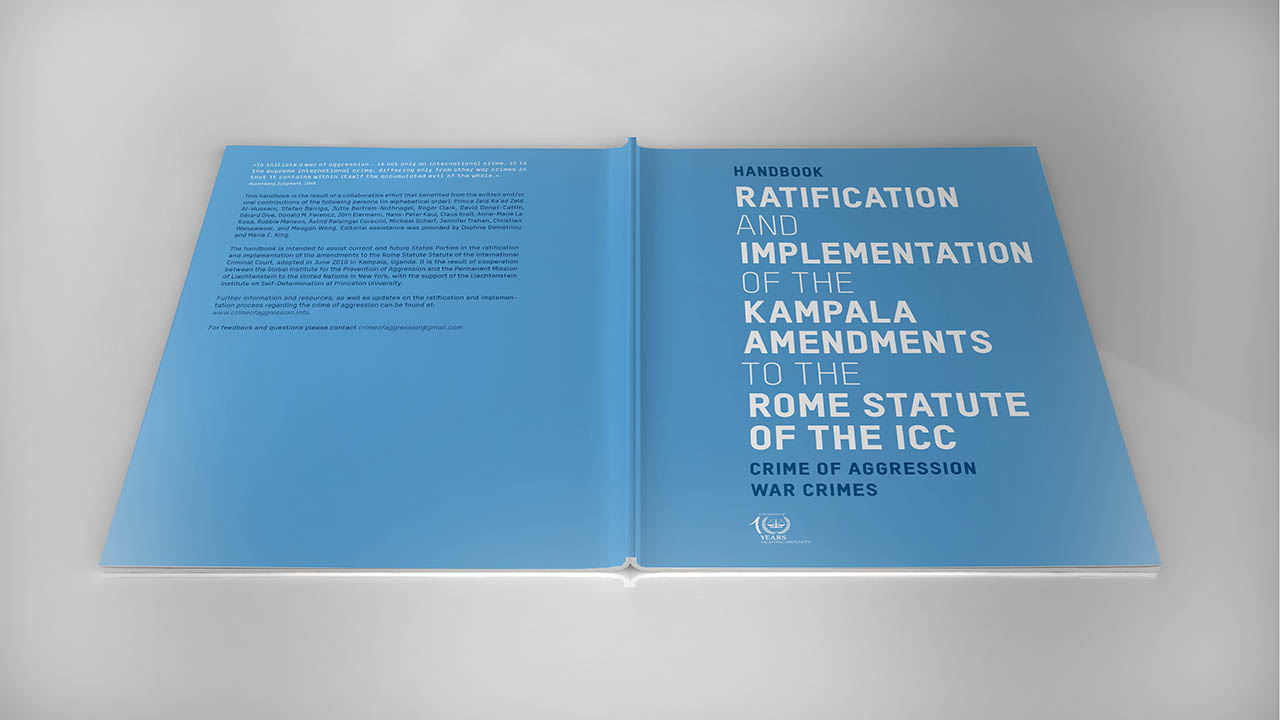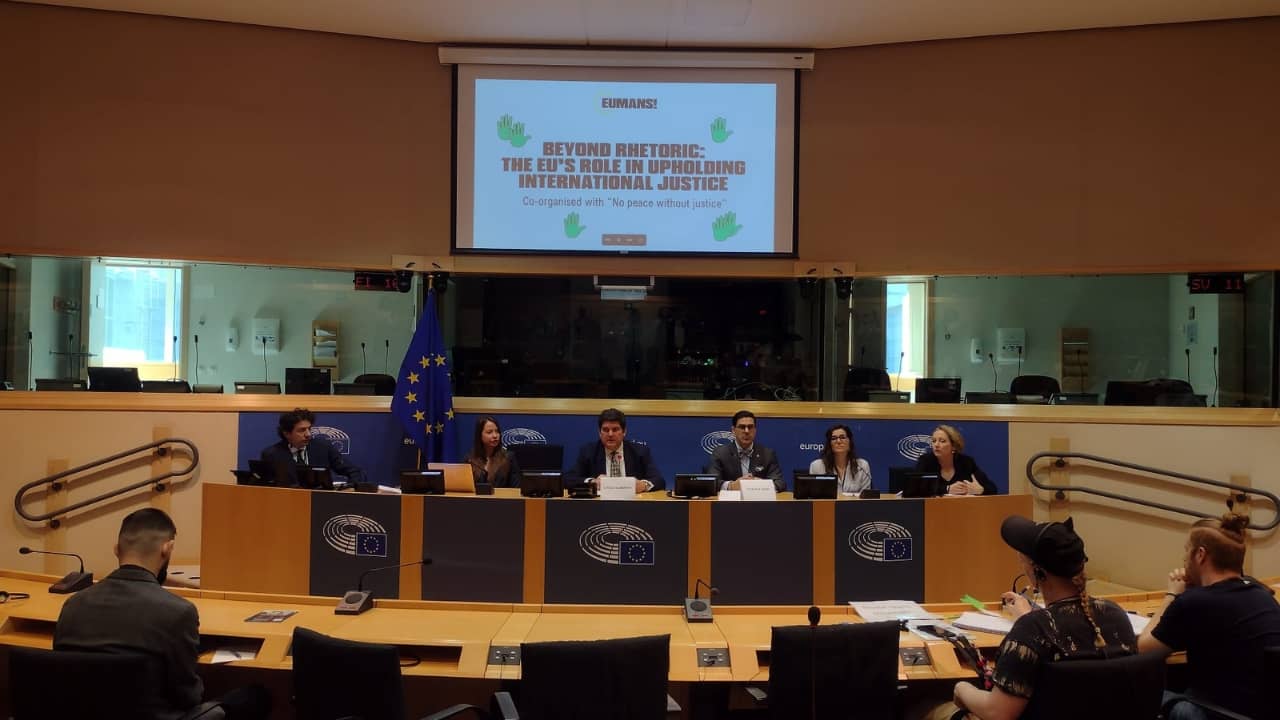
New York/The Hague/Santiago
On 23 September 2016, H.E. Mr. Heraldo Muñoz, Minister for Foreign Affairs of the Republic of Chile and H.E. Mr. Albert Koenders, Minister for Foreign Affairs of the Kingdom of the Netherlands deposited the Instruments of Ratification of the Amendments to the Rome Statute of the International Criminal Court (ICC), adopted in Kampala in 2010, at the United Nations in New York.
Chile and the Netherlands thereby accepted to bind their nationals and territory to the prohibition of the use of certain weapons in armed conflicts of non-international character, as well as to the criminalization of acts of aggression arising from the gravest forms of unlawful use of force in international relations.
Parliamentarians for Global Action (PGA), which worked closely with its members to achieve this accomplishment, welcomes this important contribution to strengthening the international legal framework to guarantee international peace and security and the territorial integrity and political independence of States, as well as to respect fundamental human rights and International Humanitarian Law.
PGA member have played a very important role in the parliamentary process that led to ratification. In Chile, PGA Member Dip. Tucapel Jimenez and other members of the PGA National group advocated and took determined action for the prompt consideration and bipartisan adoption of the Ratification Act, authorizing the Government to ratify the amendments. The PGA Chile National group promoted the decision-making on ratification in parliamentary discussions, bilateral meetings with the Minister of Foreign Affairs and a parliamentary resolution calling the government to deposit the instrument of ratification.
In The Netherlands, PGA worked actively with Members of both the Lower and Upper House in order to provide technical information and create a multi-partisan support. The crucial engagement of PGA Members, Mr. Michiel Servaes, MP, Mr. Harry van Bommel, MP, and Mr. Sjoerd Sjoerdsma, MP, enabled to address lingering misconceptions about the applicability of the Kampala Amendments on the Crime of Aggression. In particular, it clarified the non-retroactive nature of the Kampala Amendments and reaffirmed that the Amendments would not establish criminal responsibility for humanitarian interventions. This implies that if humanitarian interventions are conducted with the objectives to save lives and halt mass-atrocity crimes (genocide, crimes against humanity or large-scale war crimes), regardless of their lawfulness under International Law norms governing the use of force, they do not constitute the crime of aggression, according to the Kampala Amendments. As such, the Kampala Amendments provide clarity concerning the criminal status of aggressive wars and the non-criminal status of any uses of armed force that may fall in a "grey zone".
The prohibition of aggression is a norm of jus cogens, a peremptory and non-derogable norm of International Law, alongside the prohibitions of genocide, crimes against humanity and (large-scale) war crimes, which are also peremptory norms affirmed in the Nuremberg jurisprudence and principles right after World War II. These are the four ‘core’ crimes under International Law listed in Article 5 of the Rome Statute, which form part of the subject-matter jurisdiction of the first permanent international criminal jurisdiction, the ICC.
While the ICC has operational jurisdiction over genocide, crimes against humanity and war crimes since 1 July 2002 - date of entry into force of the Statute-, the activation of the jurisdiction over the crime of aggression has been subject to two steps. First, a threshold of 30 ratifications of the Kampala Amendments needed to be achieved, followed by the second step, the activation decision which may be taken as of 1st January 2017 by the Assembly of States Parties (ASP).
Given that the required ratification threshold is satisfied - with the ratifications of Chile and The Netherlands bringing the number of ratifications to 32-, the remaining step in order to activate the jurisdiction of the ICC over crime of aggression is the activation decision to be taken by the Assembly of States Parties (ASP) after 1 January 2017. PGA reiterates its strong support for States Parties to the Rome Statute that will be called to take this historic decision during the 2017 Assembly of States Parties.
Selected Statements:
I am very happy that following a challenging legislative process where the significant support by PGA and its National group in Chile played an important role, the Government of Chile proceeded with the deposit of the instrument of ratification of the Kampala Amendments. This proves its engagement for international justice and the strong role of the Rule of Law, which is further illustrated by the fact that the Government is actively working on the law implementing the Kampala Amendments into domestic legal system to make sure its provisions are in compliance with the international law standards.
Mr. Tucapel Jimenez (Chile),
Member of PGA and President of PGA Chile National Group
Congratulations are in order for this important step in the fight against impunity: the ratifications of the Kampala Amendments by Chile and The Netherlands. I call upon all the State Parties to the Rome Statute to complete the process of activating the jurisdiction of the Court over the crime of aggression, during the 2017 Assembly of State Parties, reaffirming the pledge of “never again” contained in the Nuremberg judgement after World War II.
Ms. Barbara Lochbihler, MEP European Parliament (Germany),
PGA Member




